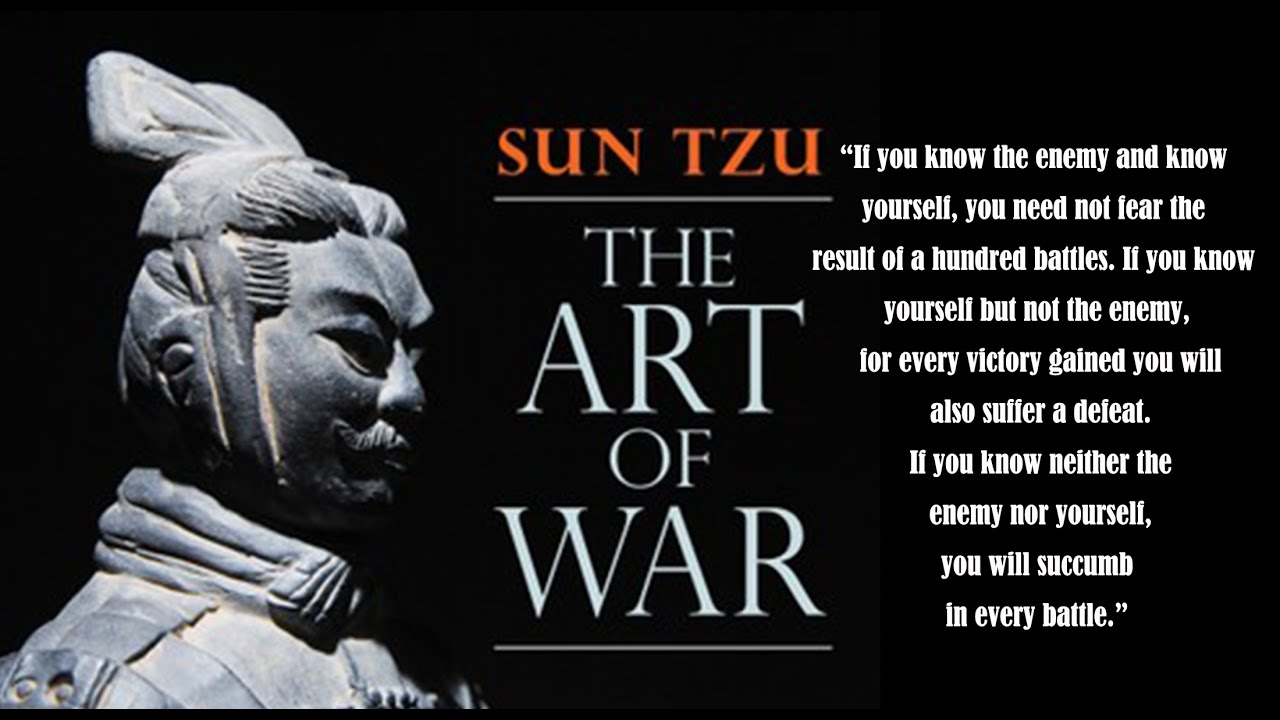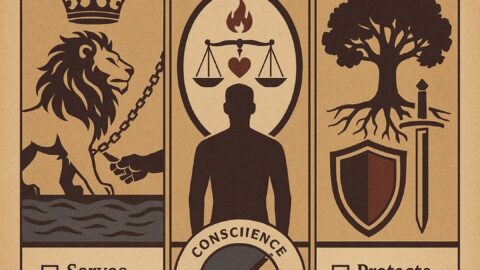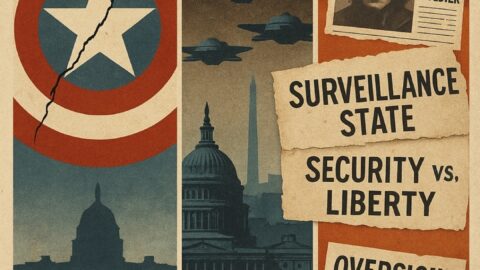There is a quote going around the Internet, “Some men would burn the whole world down just to rule over the ashes.” The quote is then attributed to Chinese philosopher and warrior, Sun Tzu. It’s a brilliant quote that speaks volumes about the sort of terrible people we elect. Far too often we see politicians who are barely functional refusing to give up their power to younger generations, allowing themselves to be controlled by unelected handlers who aren’t interested in doing what is best for the nation. We see other candidates willing to lie and smear their opponents, even if those lies destroy their own campaign in the process, opening the door for worse candidates. We see others wanting to burn the system down because they believe the system to be inherently racist, while others want to burn it down because they can’t accept that they may have lost a nomination or election. So, what does Sun Tzu recommend we do about these destructive people? Nothing. This isn’t a Sun Tzu Quote. It’s George RR Martian, from A Game of Thrones. I’m not sure how this quote became associated with Sun Tzu, but while it is a great line, it’s not his. But that doesn’t mean there aren’t things we can learn from Sun Tzu.
The Art of War is a rather short book, but it is filled with a lot of great lessons in how we should engage in the battlefield. To be honest, writing all the lessons would be a small book on its own, so I have chosen to write about the three lessons I believe to be the most critical that we can learn at this moment in time. After all, the fight for liberty cannot be won without discipline, strategic thinking, and mercy. And so, it follows that these will be my focus for today.
On Discipline
One of the most famous stories of Sun Tzu was his demonstration before the king on the importance of discipline. He was ordered to train 180 concubines in the Art of combat. So, Sun Tzu divided them into two regiments and placed the king’s favorite concubines at the head of each. When he ordered the women to turn right, they giggled, causing Sun Tzu a great deal of embarrassment. He explained to the king that when orders are not understood and followed, the fault lies with the general. A regiment should be well-trained and well-disciplined so that orders are understood. And the general needed to make sure his orders were clear and concise. He then gave the order again. Once more the women giggled, so Sun Tzu ordered the king’s two favorite concubines executed for insubordination. After that, he had no further trouble training the concubines.
I’m not suggesting the death penalty for candidates who don’t fall in line with the platforms of our respective parties, merely suggesting that those who cannot adhere to them should not have the nomination in the first place. They should not be our generals if you will. It also follows that the activists who can’t fall in line with our candidates, once they are chosen, aren’t helping the cause. Moreover, a candidate should be looked at as the general, and the activists as the soldiers. If the candidate loses, it’s their own fault. They should have the discipline enough to be able to gather, and lead supporters, and activists and if they fail to do so, there is no one to blame but themselves. Candidates must be able to lead, and activists must then follow. But good discipline is on the candidate to display. A well-disciplined candidate will inspire confidence. That confidence will inspire the activists to follow. But should the candidate fail, again, it is on them. Whining will not win wars. To win, you need a good strategy.
On Strategy
Sun Tzu spends much of the book listening out how to fight under every imaginable set of circumstances. When you are strong, appear weak. When you are weak, appear strong. Don’t fight wars of attrition, don’t be afraid to use cunning and deception, never fight with your back to water, and so on. All these tactics are important for winning an actual battle, but their themes remain consistent even in a war being fought with pens and words, as our culture war is at present. The primary lesson to learn from all of it is to understand the battlefield, and plan. Strategic thinking allows us to win before the battle is even fought, as Sun Tzu said, “Victorious warriors win first, and then go to war, while defeated warriors go to war first and then seek to win.”
It feels like we’re doing a lot of the latter lately. I won’t try to convince you there haven’t been shenanigans, but we have had next to no Get Out the Vote efforts, and very few of us are even willing to consider ballot harvesting or vote by mail, and yet we continue to be shocked by the election results. A good warrior, a good general will use all the tools available to them to win. They will study the battlefield, they will plan, they will execute that plan and they will win. Failure in any of these categories can only lead to loss.
On Mercy
The last lesson I want to touch on is mercy. Thanks to a one-sided 24/7 news industry, people have been whipped into a frenzy driven by fear. Fear has become the favorite tool of the partisans, and that fear has been the driving force behind some of the most shocking political developments in our country. We now live in a country where indicting your political rivals has been normalized. The long-term consequences of such mercilessness can only lead to increased instability. To reverse course, the winners must employ mercy. Sun Tzu said, “Build your opponent a golden bridge to retreat across.” He also said, “Supreme excellence consists of breaking the enemy’s resistance without fighting.” Sun Tzu valued diplomatic solutions and believed that the goal of any conflict was to subdue the opposition without further bloodshed. If bloodshed could be avoided altogether, all the better. But to be able to win a conflict without violence, which is the goal, one must understand why the other side fights. They fight because they’re afraid. Mercy affords us the opportunity to calm those fears and offer assurance that nothing bad will happen to them, should they lay down their arms. Lately, some have been running their campaign with promises of vengeance. Sun Tzu would not recommend this course of action, as mercilessness will only increase fear, and the deeper the fear in the opposition, the bigger the fight.
There is much more we can learn from Sun Tzu. The Art of War is a small book, and I read it annually. I would like to encourage readers to pick up a copy and read it as well. We need to be more thoughtful, and tactical in our engagement. What we’ve been doing isn’t working. Whining does not win, and vowing revenge will never convince the opposition to stand down. Instead, we need to understand the battlefield and use all tools available to us, including Vote by Mail, Early Ballots, and Ballot Harvesting. We also need to assure the opposition that, rather than seeking revenge, a return to normalcy is possible if they will just stand down.







